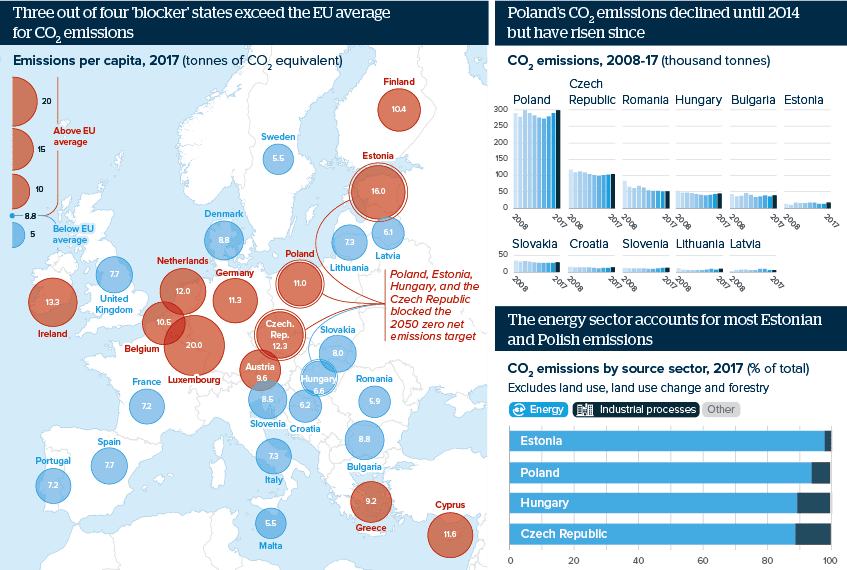Four eastern members block EU 2050 carbon-neutral plan
EU member states in Central Europe are wary of ambitious EU plans to reduce greenhouse gas emissions
Source: Eurostat
Outlook
After four hours of heated debate, the Czech Republic, Estonia, Hungary and Poland early on June 21 blocked an EU summit declaration for the Union to become carbon-neutral by 2050. The summit instead noted that it was a goal for “a large majority of member states”.
CO2 emissions from all sources declined across the EU by 15.3% between 2008 and 2017, but rose by 16.7% in Estonia (which relies on indigenous oil shale) and by 2.9% in Poland (coal). The four hold-outs want guaranteed compensation for the costs of switching from fossil fuels.
Impacts
- The EU has missed the diplomatic coup of going to the UN Climate Action summit in September with an ambitious 2050 target.
- It will still try to strengthen its climate goals, driven by a popular mood shift and the increased Green vote in the May European election.
- Expected to miss its goal of achieving 15% of energy consumption from renewables by 2020, Warsaw now plans more green capacity in 2019.
- Slovakia, which depends less on coal than Poland, will boost its EU status by standing apart from the other three Central European members.
See also
- Poland welcomes EU funding for future green transition - Jan 17, 2020
- Prospects for climate governance in 2019-23 - Dec 4, 2018
- More graphic analysis
